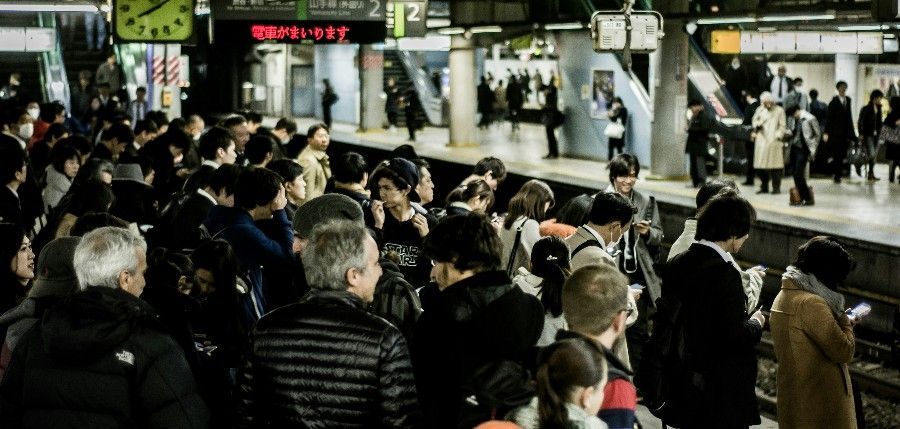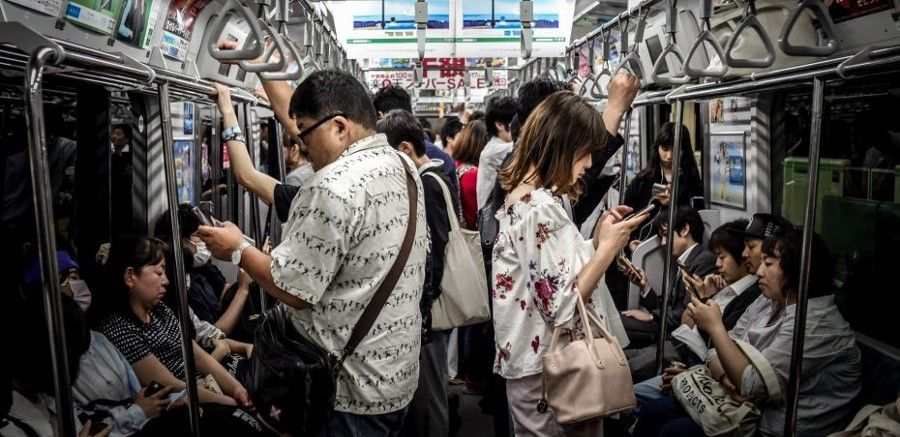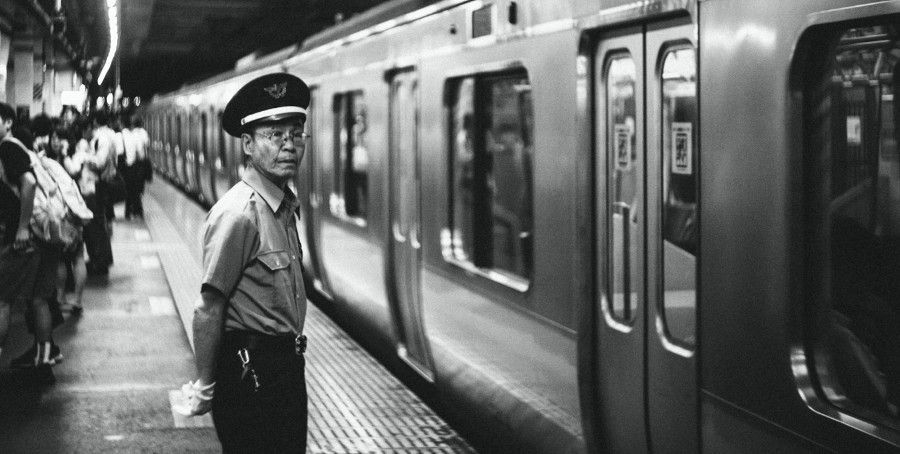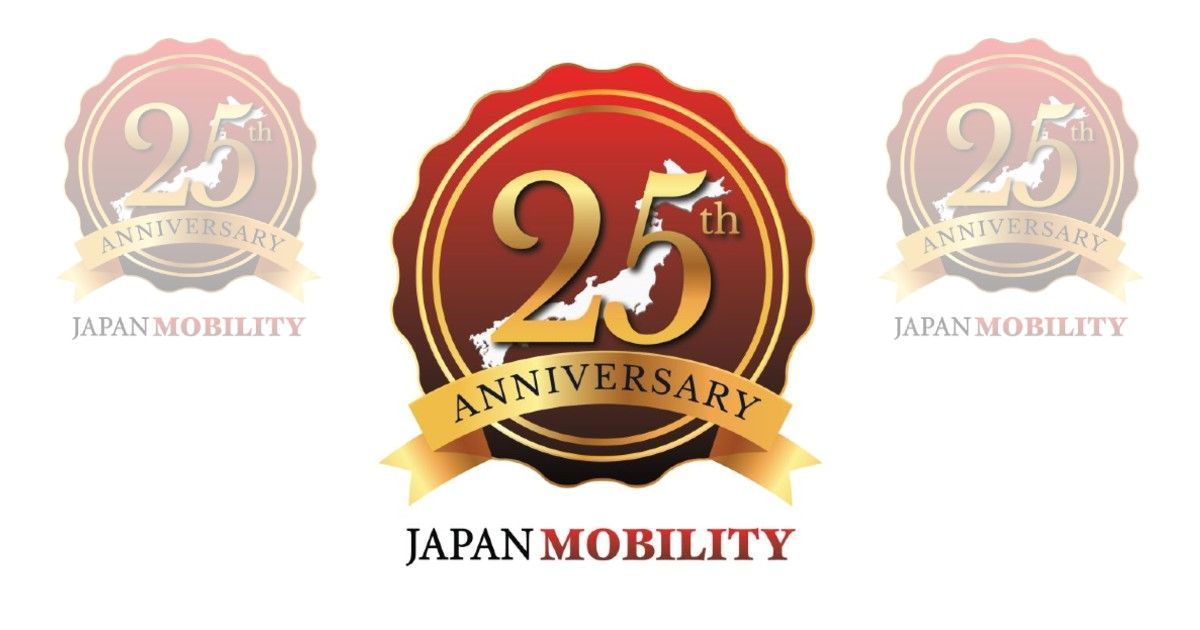Navigating the Rails: A Guide to Japanese Train Etiquette for Expats
Japan loves its trains. From the lightning speed of its famous Shinkansen (bullet train) to the slowest one-carriage locomotive helping a single passenger to school, Japan has easily one of the most impressive train systems in the world at a surprisingly affordable price compared to some other developed nations.
With thousands (if not millions) of people taking trains every day, understanding and adhering to Japanese train etiquette is essential for a smooth and respectful commuting experience.
In this post, we'll explore some key aspects of train etiquette that expats should be aware of to seamlessly integrate into Japan's bustling rail culture.

Queueing up: The Art of Patience
In Japan, forming an orderly line while waiting for the train is a cultural norm. When the train arrives, wait for passengers to alight before boarding. Respect personal space and maintain a queue, especially during peak hours. This may be different from some Western countries, but it's crucial for a harmonious commute. No doubt you’ll see the occasional passenger barging through a crowd of commuters trying to get off their train, but don’t follow suit!

Priority Seating: Respect for the Elderly and Disabled
Priority seating is designated for elderly individuals, pregnant women, and passengers with disabilities. Expats should be mindful of these seats and offer them to those who need them. It's a common practice to vacate these seats even if they are empty if someone in need is standing nearby and it’s a great opportunity to show the kindness of foreigners in Japan and interact with the locals.
Silence is Golden: Mobile Phones and Noise
Japanese trains are known for their peaceful and quiet atmosphere. Expats should set their mobile phones to silent mode and avoid talking loudly. If you need to make a call, use the designated areas near the doors or step off the train momentarily to maintain the tranquil environment within the carriages.

Personal Space: The Unwritten Rule
Japanese people highly value personal space, and this extends to train travel. Avoid pushing or shoving, and keep a reasonable distance from fellow passengers. Ensure your backpack is not causing discomfort to others and be conscious of your surroundings. It’s common for passengers to wear a backpack on the front to avoid avoidable collision with others or even holding it lower down in front of them.
Eating and Drinking: A Considerate Approach
While it's generally acceptable to eat and drink on long-distance trains, it's advisable to refrain from doing so on crowded, short-distance trains, especially subways. If you do choose to eat, be discreet, and dispose of your trash appropriately. Many stations have designated areas for eating and drinking.

No Smoking: A Strict Prohibition
Smoking is strictly prohibited on trains and train platforms in Japan. Expats should be aware of designated smoking areas within the station premises if they need to smoke. Failing to adhere to this rule may result in fines and social disapproval. This also applies to e-cigarettes as well, so be careful. Long-distance trains such as the Shinkansen will have a designated smoking room, so please use those where available.
Exiting the Train: Efficiency Matters
When your stop is approaching, make your way to the doors in advance. Allow passengers to exit first before boarding or disembarking. Avoid causing delays by standing in front of the doors, and be swift in entering or exiting the train. If another passenger is in your way, politely say ‘Sumimasen’ and they’ll make efforts to move out of the way and allow to exit the train. It’s also common practice to alight the train temporarily to allow passengers to get off if you are standing by the exit and in the way with no room to manoeuvre inside. In this case, stand in the front of the passengers on the platform to clearly show your intention of getting back on.

Rush Hour and Frantic Festivals
While all of these rules apply to your everyday commute, there are a few exceptions where Japanese people agree a lot of them just fly out the window. Rush hour in Japan can be chaos and people will push themselves onto a train with some stations even having staff to help shove people on and squeeze them in like sardines. It’s even worse after a cultural festival, where hundreds or thousands of people are desperately trying to get the last trains. They are rammed and noisy and can be very uncomfortable for first timers. Read the situation and in this case, just follow what the Japanese do!
Mastering Japanese train etiquette is an integral part of acclimating to life as an expatriate in Japan. By embracing these unwritten rules, you not only contribute to the efficiency of the country's renowned train system but also gain the respect of your fellow passengers. So, hop on board, observe these etiquette guidelines, and enjoy the seamless journey through the Land of the Rising Sun!






















